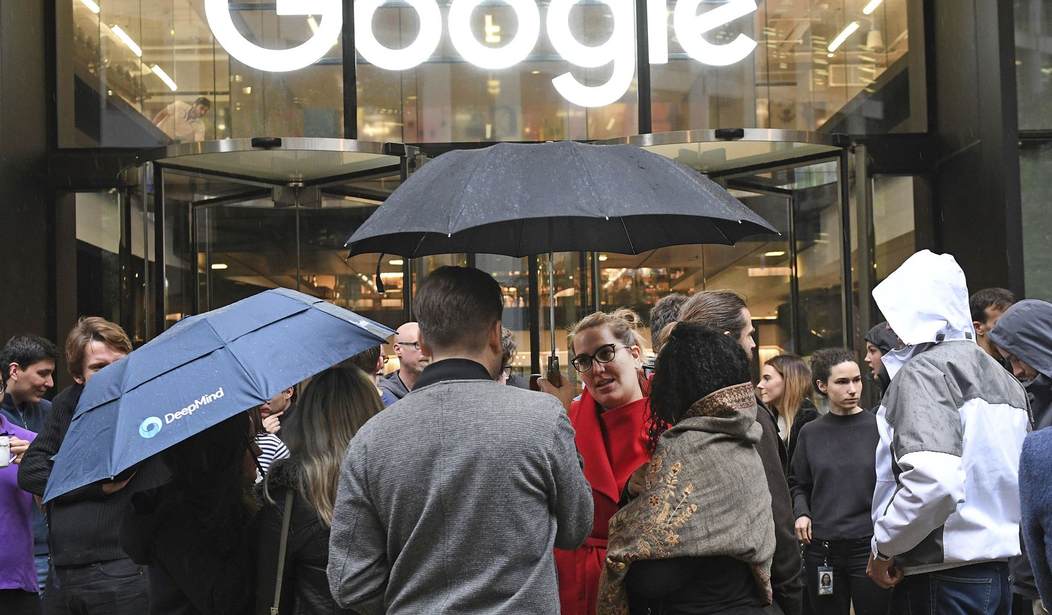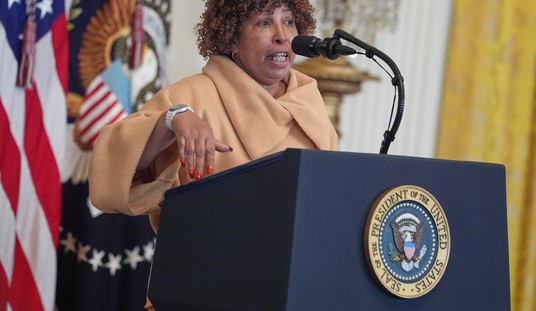When two Antifa activists who claim to be photojournalists recently sued independent journalist Andy Ngo for retweeting their videos without their permission, their supposed underlying thought process wasn’t a bad one: since they were the ones who’d gone out into a dangerous situation to shoot video, they should be the ones profiting from its distribution, not Ngo. They claimed that while Ngo didn’t receive money from the retweets, he received credibility, and used that credibility to further his career.
Obviously there were legal problems with their claim, one being that Ngo was using tools Twitter provides to its users to share videos and they still received credit, and they dismissed their frivolous lawsuit. But if Big Tech, particularly Google, gets its way, the idea that creators have broad rights to their own works won’t be backed up in United States copyright law.
For years companies like Google and Spotify, whose revenue streams depend on content and profits depend on how cheaply they can acquire it, have worked to weaken copyright protections. They know they can’t get what they want through a transparent legislative process, so they’ve set their sights on effectively changing the law by using “a well-established legal organization to ‘restate’ and reinterpret our copyright laws for the nation’s judicial system.”
The organization, American Legal Institute (ALI), an invite-only organization for legal scholars, is known for its Restatements of Law, which have been described as “Cliff’s Notes” guides to various legal topics:
The ALI…is widely known and rightfully recognized within legal circles as an authority on explaining the law. Through their best-known works, called “Restatements of the Law,” the ALI compiles all aspects of a legal topic and publishes a “Cliff’s Notes” guide to that topic. These Restatements are regularly relied upon by our nation’s judges when they are asked to decide on cases requiring expert knowledge of a particular subject.
According to the Content Creators Coalition, ALI’s Restatements are “descriptive black-letter texts designed ‘to reflect the law as it presently stands’ that are used by courts, scholars, and legislatures to understand the current state of the law on any subject. ALI Restatements have historically been considered the gold standard for unbiased legal clarity and precision” (emphasis added).
If legal scholars whose views on copyright law “evolution” were similar to Google’s were to head up ALI’s Restatement, that would be very convenient for Google – and would get them out of the position of openly working against creators’ rights. Coincidentally, that’s exactly what’s happened.
Although ALI’s Restatements almost exclusively focus on common law (formed by precedent) and not statutory law, the organization started a project aiming to restate the Copyright Act, a federal statute, back in 2013 at the suggestion of UC Berkeley law professor Pamela Samuelson. According to then-Acting Register of Copyrights Karyn Temple:
[T]he Restatement project appears to create a pseudo-version of the Copyright Act that does not mirror the law precisely as Congress enacted it.
Samuelson is the founder of the Samuelson-Glushko Law Clinics (which one blogger referred to as “Silicon Valley’s answer to the Confucius Institutes)” who, at a Copyright Society of the USA conference “vehemently railed against awards of damages for copyright infringement while a room full of the nation’s top copyright law practitioners sat in shocked, slack-jawed silence or excused themselves for coffee.”
Samuelson suggested that NYU law professor Christopher Sprigman, with whom she’s worked since at least 2010, head up the project. Sprigman has written five Google-funded research papers and partnered with the Google-funded Fair Use Project at Stanford University. He rarely tries cases, but represented Spotify in a case over mechanical royalties.
The Restatement process involves ALI members who are subject matter experts — known as ‘Reporters’ — analyzing and debating issues, and ultimately publishing the draft Restatement. The project is led by a ‘Lead Reporter’ who is assisted by Associate Reporters and advisers. According to ALI:
“[R]eporters…should perform their responsibilities with the objectivity expected of legal scholars. Accordingly, they must exercise sensitivity to the risk and appearance of conflict of interest in their work for the Institute.”
Yet the Lead Reporter and three of the four Associate Reporters on the copyright restatement project have serious conflicts of interest and known biases. They’re on record espousing the following anti-copyright positions:
- Copyright is fundamentally harmful to society because it stifles competition
- “Copying” another’s work “is a form of competition”
- American anxiety and anger over Chinese piracy are misplaced
- Artists’ “right to say ‘no’ when it comes to getting permission to use copyrighted content” should be limited
- Online piracy is just “a new form of social interaction”
- “[T]he copyright system is broken” and nothing more than “a profit maximizing tool” for creators
- Attempts to shut down mass piracy file-sharing websites are “bad for society”
- Protecting authors’ work is not a main goal of copyright law
A more detailed examination of the Reporters’ biases and conflicts of interest will appear in the second part of this series. But despite these known biases and conflicts, content creators and the public are somehow supposed to believe that these Reporters can set that all aside and that the Restatement is a serious scholarly work.
It should come as no surprise that by the time the first drafts were released in 2018 it was clear that Big Tech’s interests were going to be favored at the expense of creators’ rights – even if it meant that the Reporters’ opinions would take the place of statutory law. At that time Scott Alan Burroughs at Above The Law wrote (emphasis added):
ALI’s forthcoming copyright Restatement achieves none of ALI’s goals and attempts to make major unnecessary changes to existing law.
The proposed language of the Restatement departs significantly from relatively settled precedent to opine as to how the law “should be” in the future. And these beliefs about how the law “should be” are transparently out-of-step with prevailing statutory and other relevant authority. From a preliminary review of the project’s language, the copyright law is being “restated” in a manner that greatly favors Big Tech and their confederates in their ongoing campaign to devalue art and content. For example, the Restatement favors and promotes a 1995 computer program copyright decision over a 2014 decision that rejected the earlier reasoning. Now, it is hard to argue that courts had more facility with computer copyright issues in 1995 than they did in 2014, but the 1995 decision was more favorable to Big Tech interests, and — voila! — this 22-year-old decision gets prominent placement over the more recent and prevailing legal precedent.
Incredibly, the Restatement doesn’t always use the statutory text as the “black letter” law at the beginning of each section, sometimes rephrasing it instead. And, it doesn’t “afford appropriate deference to interpretations of the law by the Copyright Office,” a complaint made by one of the Advisors in her resignation letter.
At this point the project is opposed by a bipartisan group of legislators, by the US Chamber of Commerce, and every legitimate industry group (meaning, non-astroturfed groups). In addition, four of the Restatement’s Advisors, well-regarded copyright law scholars – took the unprecedented step of sending an email blast to members the night before a scheduled vote on draft language, urging a “no” vote:
“We believe that the unprecedented nature of the project — a ‘restatement’ of a comprehensive federal statute that does not take the statute as its black letter starting point — raises significant concerns about the ALI’s reputation and legitimacy,” the email said. “As the Supreme Court reminds us, statutory interpretation begins with the text of the statute. Nonetheless, the ALI has persistently resisted these efforts.”
The group only took this action after ALI informed them that a proposed amendment to the draft Restatement they’d filed, which would note their opposition, would not be heard.
This isn’t ALI’s first controversial Restatement. It appears that ALI has become more “activist” over time and attempted controversial restatements in the subject of insurance law and consumer contracts. Back in 2015 Justice Scalia called the group out in the Kansas v. Nebraska opinion (emphasis added) and issued a caution to judges relying on Restatements:
I write separately to note that modern Restatements—such as the Restatement [at issue in the case at bar]—are of questionable value, and must be used with caution. The object of the original Restatements was “to present an orderly statement of the general common law.” Restatement of Conflict of Laws, Introduction, p. viii (1934). Over time, the Restatements’ authors have abandoned the mission of describing the law, and have chosen instead to set forth their aspirations for what the law ought to be….And it cannot safely be assumed, without further inquiry, that a Restatement provision describes rather than revises current law.
With the copyright Restatement, Google’s allies at ALI might have overplayed their hand. In part 2 of this series, we will investigate the connections between the Restatement’s reporters, advisers, and Google.















Join the conversation as a VIP Member